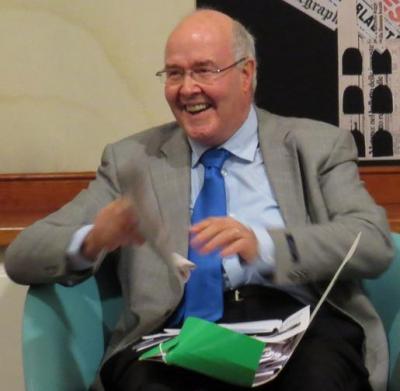Catholic "rebels" challenge Pope's mercy on marriage

ROME — Pope Francis’ media exposure during Easter celebrations confirmed his role as a popular and respected world leader, but this week a group of Catholic lay intellectuals will gather in Rome to question his teaching on marriage in a move that threatens to undermine his moral authority and reduce his esteem among the faithful.
The Catholic “rebels” will meet on Saturday in a hotel a few hundred metres from St Peter’s Basilica to press for clarification of a papal teaching document, Amoris Laetitia (The Joy of Love), providing guidelines on family morality and published in April 2016 after two years of synodal debate.
The meeting will be addressed by six leading Catholic intellectuals who argue that the Pope’s emphasis on mercy, and in particular the idea of allowing remarried divorcees to take communion, risks watering down traditional Catholic doctrine to an unacceptable degree. Four conservative cardinals signed an appeal to the Pope for clarification of this aspect, to which he has not explicitly replied.
Organisers of the conference hope to demonstrate that their position has the support of some of Catholicism’s foremost thinkers and represents a significant slice of Catholic lay opinion from all around the world.
“This conference is not a kind of public mutiny against Pope Francis, or an ultimatum to the Pope,” said Giuseppe Rusconi, a journalist and spokesman for the conference organisers. “It’s a request for clarification of certain fundamental parts of the social doctrine of the Church, which have been called into doubt from inside the Church itself.”
Mr Rusconi said religious leaders were welcome to attend, including the four cardinals who signed the appeal to the Pope, known as “Dubia” from the Latin word for doubts, but all the speakers would be lay people. The conference was organised by two Italian Catholic newspapers, Il Timone and La Nuova Bussola Quotidiano, and financed by grassroots Catholic associations, he said.
Mr Rusconi insisted the conference participants were not linked to or dependent on the rebel cardinals, who were led by the American Cardinal Raymond Burke, but wanted to show they were not isolated. “We want to give courage to those ecclesiastical voices that have remained silent out of opportunism, and to show Santa Marta (the Pope’s residence) that the problem is not resolved, but persists.”
Anna M. Silvas, a leading scholar of the early church who teaches at the Australian Catholic University in Melbourne and who will be one of the speakers on Saturday, said she believed the consensus of the faithful supported the dubia of the cardinals.
“Criticism that the dubia “faction” is disloyal to the Pope, already preempts the question in terms which are designed to shut down any discussion. It is a tactic of intimidation. The Church does not need these toxic games of intimidation and venal politics. They hardly breathe the spirit of Christ,” Dr Silvas said.
“The question rather, concerns loyalty to the unbroken tradition and teaching of the Lord, the Apostles and the Church, through two thousand years, to say nothing of the express confirmations of that teaching in the magisterium of the previous two popes, and other organs of the Church’s magisterium.”
Dr Silvas said a year of worsening confusion and controversy had left the Catholic Church in crisis.
Douglas Farrow, a professor of Christian thought at McGill University in Canada, another of the speakers, said he couldn’t hazard a guess at how the dispute would end.
“I will only say for the moment that ignoring the dubia would not appear to be a way forward, since the issues they seek to resolve are not private issues but rather issues that concern the entire Church,” he said.
In an article published in the online magazine First Things last month, Prof. Farrow gave an inkling of what he is likely to be saying in Rome, blaming Pope Francis for the “trauma” of Amoris Laetitia and the dubia and criticising his “somewhat erratic” remarks.
“Being Catholic does not mean refusing to be critical of the bishop of Rome. There are times when one must be critical, and this is such a time,” he wrote. “It is not merely poor history, however, but a false and dangerous papolatry—Catholics, not Protestants, should be the first to say so—to fancy that the Vicar of Christ is somehow above criticism, as if he were Christ himself.”
Prof. Farrow said many Church leaders appeared to have “gone soft on the sacraments” and were failing to teach on marriage and adultery that “neither circumstances nor intentions can render a bad act good.” In the article he warned: “What is certain is that we are living in a long period of apostasy and of purification. In St. Peter’s words, ‘the time has come for judgment to begin with the household of God’.”
Mr Rusconi, himself a conservative Catholic, said he hoped the conference might convince the Pope to receive the “doubting” cardinals or to write an encyclical to further clarify the social doctrine of the church. “With Pope Benedict two plus two equalled four,” he said. “With Pope Francis it’s an open question, we don’t know, because the answer is a work in progress.”


